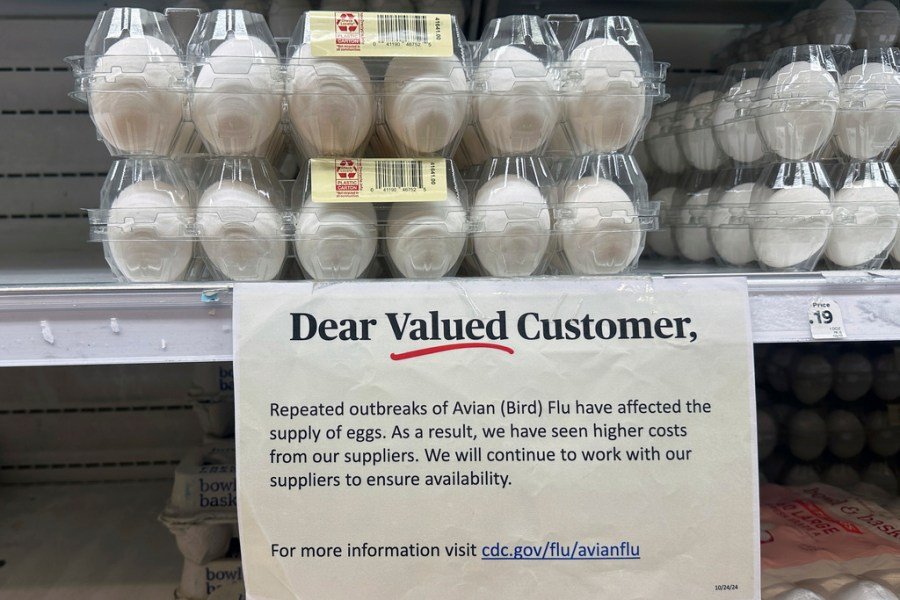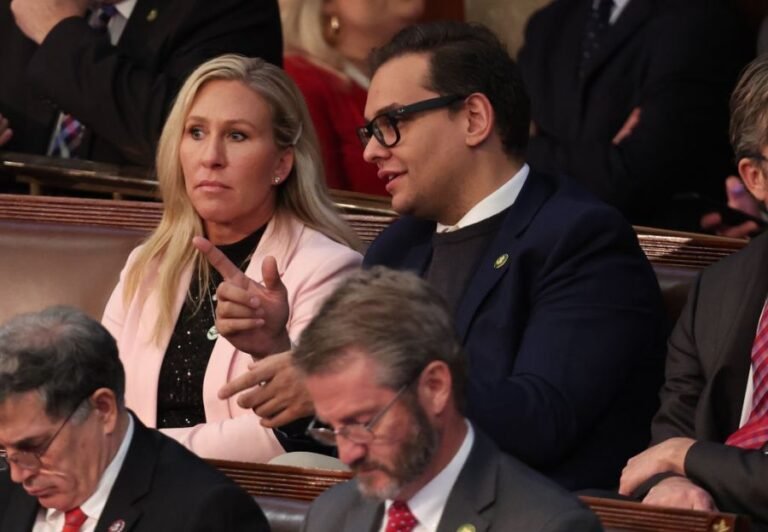
I am honored to work with America’s egg farmers daily, and I can attest that those accusing egg-farmers and sellers of price-gouging are badly mischaracterizing the crisis egg farmers are facing.
We are now in year four of a catastrophic global animal disease outbreak that has wiped out more than 130 million egg-laying hens in the U.S. Highly pathogenic avian influenza, or bird flu, has profoundly disrupted our nation’s system of egg production and our egg supply. This consequently drove the price of eggs to historic highs earlier this year.
Egg farmers have been in the fight of their lives, American consumers are hurting and our food system has been facing an existential threat. But misinformed pundits never seem to allow facts to get in the way of exploiting a good crisis. What the last six months of obsessive media coverage and discussion around eggs have made abundantly clear is that eggs are really important to Americans.
Common sense tells us that when a high-demand product is in low supply, prices increase. Nearly 40 percent of our total flock losses in the last three years occurred within the six months between the fourth quarter of 2024 and the first quarter of 2025. That is a staggering 51 million laying hens lost to this deadly virus since October. Anyone questioning the impact this has had on the egg supply clearly doesn’t shop for groceries, or else they would’ve noticed gaping holes in the egg case, if it wasn’t completely empty.
At the same time, demand for eggs has been off the charts. Americans need and love eggs more than ever. In fact, we’re coming off 23 consecutive months of year-over-year increases in the volume of eggs sold at retail. Not coincidentally, the record pricing spikes we saw late last year and early this year, in tandem with the loss of birds, occurred during and ahead of the two peak sales seasons for eggs — the winter holidays and Easter.
It’s important to bear in mind that eggs are sold on wholesale markets as commodities. The funny thing about markets is that psychology tends to play a role in valuation. History is littered with examples of the severe impact that scarcity can have on market values. What we have experienced lately is just economics 101, pure and simple.
But don’t let that get in the way of giving a fair hearing to supposed expert analyses from supposedly objective third parties that also happen to be committed to eliminating all animal-sourced proteins from Americans’ diets.
Common sense also suggests that when a catastrophic animal disease emergency threatens our national food system, and federal policy for combating that disease requires poultry farmers to euthanize their flocks, a federal disaster relief program for those farmers is needed. I have sat with farmers who have lost their flocks not once, not twice, but sometimes three times. I have been with them as they and their employees have cried. I can tell you that they would trade anything to have healthy birds and not need federal disaster support.
Indemnity falls far short of making a farm financially whole, but this crucial disaster support ensures that farms recover and resume supplying food. Make no mistake: without indemnity, egg farms would fail and there would most assuredly be even fewer eggs — and those remaining eggs would cost a lot more. Creating greater scarcity is not a path to reducing prices.
The scale of loss and duration of this outbreak have impacted all aspects of egg production, including availability of new chicks, which has compounded the length of time it takes for egg farms to recover and return to producing eggs. While it’s going to take a sustained period with no additional bird flu detections on egg farms to recover fully, there is some good news.
The swift and decisive action laid out by U.S. Secretary of Agriculture Brooke Rollins in the department’s five-point strategy offers both near- and long-term viable, common-sense solutions. We’re not out of the woods yet, but there’s a roadmap and there’s hope. Egg markets have stabilized and wholesale prices have dropped dramatically.
Egg farmers are strong and resilient and they’re doing everything they can to beat this disease and restore egg production, but it hasn’t been easy. Not only are they battling the worst animal health emergency in U.S. history, but they’re also having to defend themselves against careless and ill-informed rhetoric that could have real-world implications for our nation’s ability to produce eggs into the future.
Bird flu is a real challenge we’re facing, and it requires grown-up solutions. It’s time to restore common sense to the conversation, so America’s egg farmers can get back to doing what they do better than anyone on the planet: producing nutritious, high-quality food for a nation that loves its eggs.
Emily Metz is president and CEO of the American Egg Board, the national agricultural commodity checkoff organization for America’s egg farmers.


